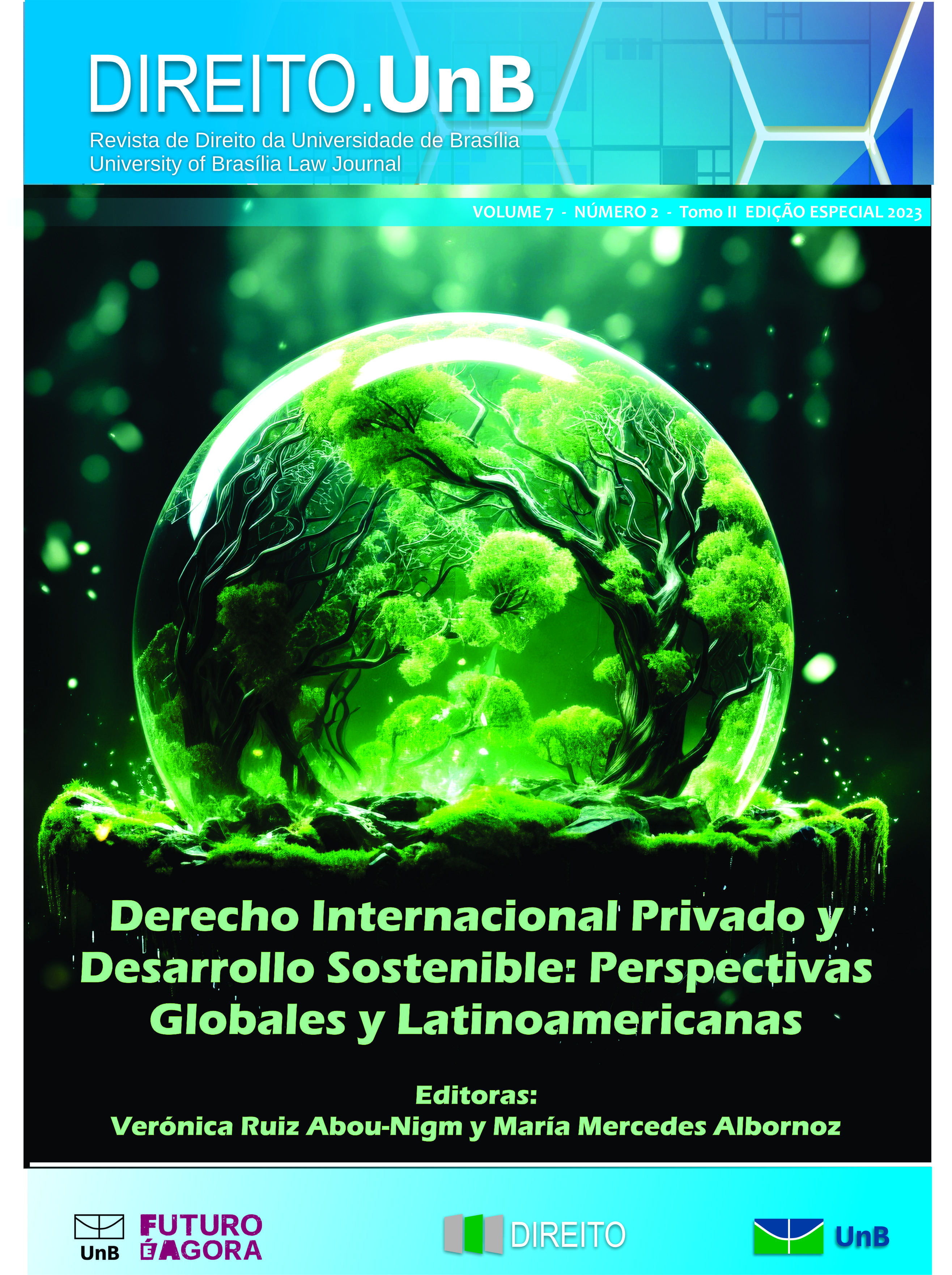Views
New Book: Recognition of Judgments in Contravention of Prorogation Agreements
Written by Felix M. Wilke, Senior Lecturer at the University of Bayreuth, Germany.
Must a foreign judgment be recognised in which a jurisdiction agreement has been applied incorrectly, i.e. in which a court wrongly assumed to be competent or wrongly declined jurisdiction? Within the European Union, the basic answer is a rather straightforward “yes”. Recognition can only be refused on the grounds set forth in Article 45(1) Brussels Ibis Regulation, and unlike Article 7(1)(d) of the recently adopted HCCH Judgments Convention, none of them covers this scenario. What is more, Article 45(3) Brussels Ibis expressly states that the jurisdiction of the court of origin, save for certain instances of protected parties, may not be reviewed, not even under the guise of public policy.
Why, then, should one bother to read the book by Niklas Brüggemann, Die Anerkennung prorogationswidriger Urteile im Europäischen und US-amerikanischen Zivilprozessrecht (Mohr Siebeck) on the recognition of judgments in contravention of prorogation clauses in European and US-American law? The first and rather obvious reason can be found in the second part of the title. The book contains a concise, yet nuanced overview of the law of jurisdiction agreements in the US (in German). To the knowledge of this author, it has been 12 years since the last comparable work was published (Florian Eichel, AGB-Gerichtsstandsklauseln im deutsch-amerikanischen Handelsverkehr (Jenaer Wissenschaftliche Verlagsgesellschaft) – which dealt with recognition only in passing and was limited to German and US law). Thus, this new book can be recommended to anyone with sufficient command of the German language who is interested in this particular aspect of US civil procedure, whose concepts – if one even dares to use that term – partly differs from European ideas.
The second and main reason to concern oneself with Brüggemann’s book, however, is his proposition for a new ground of refusal of recognition: a new Article 45(1)(e)(iii) Brussels Ibis for which he even offers a draft. To this end, the author comprehensively analyses jurisdiction agreements within the Brussels Ibis framework. While Article 31(2) Brussels Ibis, one of the main innovations of the Recast, has indeed “enhance[d] the effectiveness of exclusive choice-of-court agreements” (Recital 22 Brussel Ibis), Brüggemann argues that the Regulation still safeguards jurisdiction agreements insufficiently. He points out several situations (e.g. asymmetrical agreements, mere derogation agreements) that Article 31(2) Brussels Ibis does not cover in the first place. He also argues in some detail that the court first seised is allowed to examine the jurisdiction agreement in question with regard to the existence of an agreement and its formal validity; its assessment would be binding upon other courts in line with Gothaer Allgemeine (ECJ Case C-456/11). This in turn would lead to a race to the courts and even to a race between the courts. (The latter metaphor is only partially convincing, for it is unlikely that the judges will intentionally accelerate their respective proceedings in order to “beat” the other court.)
Brüggemann goes on to argue that when it comes to jurisdiction agreements it is contradictory to make an exception to the principle of mutual trust in the lis pendens context but to strictly adhere to it in the recognition context. He demonstrates that, in particular, default judgments by a derogated court pose a significant risk for the defendant – one with which US civil procedure arguably deals more effectively. Alas, this appears to be the only instance in which the author’s comparative analysis, as interesting it is in and of itself, contributes to his broader point. He concludes by pointing out parallels to jurisdiction in insurance/consumer/employment matters (safeguarded at the stage of recognition by Article 45(1)(e)(i) Brussels Ibis) and exclusive jurisdiction (safeguarded at the stage of recognition by Article 45(1)(e)(ii) Brussels Ibis), and by suggesting that a special ground for refusal of recognition would have positive effects on the internal market.
While the abovementioned Judgments Convention is too recent to feature in the book, the author was able to consider its draft in a separate, albeit somewhat oddly positioned, chapter. Conspicuously absent is any specific discussion of the issue of damages for the violation of a choice of court agreement (see this recent post). The omission is certainly justifiable as Brüggemann is only concerned with procedural safeguards for jurisdiction agreements. But maybe such a remedy under substantive law could obviate or at least lessen the need for a separate ground of refusal of recognition? All in all, however, the author has carefully built a compelling case for an addition to Article 45(1) Brussels Ibis.
Staying Proceedings under the Civil Code of Quebec
Written by Professor Stephen G.A. Pitel, Western University
The decision of the Supreme Court of Canada in R.S. v P.R., 2019 SCC 49 (available here) could be of interest to those who work with codified provisions on staying proceedings. It involves interpreting the language of several such provisions in the Civil Code of Quebec. Art. 3135 is the general provision for a stay of proceedings, but on its wording and as interpreted by the courts it is “exceptional” and so the hurdle for a stay is high. In contrast, Art. 3137 is a specific provision for a stay of proceedings based on lis pendens (proceedings underway elsewhere) and if it applies it does not have the same exceptional nature. This decision concerns Art. 3137 and how it should be interpreted. Read more
HCCH Event on the HCCH Service Convention in the Era of Electronic and Information Technology and a few thoughts
Written by Mayela Celis
The Permanent Bureau of the Hague Conference on Private International Law (HCCH) is organising an event entitled HCCH a / Bridged: Innovation in Cross-Border Litigation and Civil Procedure, which will be held on 11 December 2019 in The Hague, the Netherlands. This year’s edition will be on the HCCH Service Convention.
The agenda and the registration form are available here. The deadline for registrations is Monday 11 November 2019. The HCCH news item is available here.
A bit of background with regard to the HCCH Service Convention and IT: As you may be aware, the Permanent Bureau published in 2016 a Practical Handbook on the Operation of the Service Convention (available for purchase here), which contains a detailed Annex on the developments on electronic service of documents (and not only with regard to the Service Convention). In that Annex, developments on the service of documents by e-mail, Facebook, Twitter, etc. and its interrelationship with the Service Convention were analysed. Not surprisingly, cases where electronic service of process was used were rare under the Service Convention (usually, the physical address of the defendant is not known, thus the Service Convention does not apply and the courts resort to substituted service).
A more important issue, though, appears to be the electronic transmission of requests under the Service Convention. According to a recent conclusion of the HCCH governance council, it was mandated that:
Electronic transmission of requests
“40. Council mandated the Permanent Bureau to conduct work with respect to the development of an electronic system to support and improve the operation of both the Service and Evidence Conventions. The Permanent Bureau was requested to provide an update at Council’s 2020 meeting. The update should address the following issues: whether and how information technology would support and improve the operation of the Conventions; current practices on the electronic transmission of requests under the Conventions; legal and technological barriers to such transmission and how best to address these; and how a possible international system for electronic transmission would be financed. “
In contrast, the European Union seems to be at the forefront in encouraging electronic service of documents as such, see for example the new proposal for Regulation on the service of judicial and extrajudicial documents in civil or commercial matters, click here (EU Parliament, first reading).
Article 15a reads as follows:
“Electronic service
1. Service of judicial documents may be effected directly on persons domiciled in another Member State through electronic means to electronic addresses accessible to the addressee, provided that both of the following conditions are fulfilled: [Am. 45]
(a) the documents are sent and received using qualified electronic registered delivery services within the meaning of Regulation (EU) No 910/2014 of the European Parliament and of the Council, and [Am. 46]
(b) after the commencement of legal proceedings, the addressee gave express consent to the court or authority seized with the proceedings to use that particular electronic address for purposes of serving documents in course of the legal proceedings. [Am. 47].”
By adding the word “both” the European Parliament seems to restrict electronic service to documents after service of process has been made (see previous European Commission’s proposal). This, in my view, is correct and gives the necessary protection to the defendant. In the future and with new IT developments, this might change and IT might be more widely used by all citizens (think of a government account for each citizen for the purpose of receiving government services and service of process -although service of process comes as a result of private litigation so this might be sensitive-), and thus this might provide more safeguards. In my view, the key issue in electronic service is to obtain the consent of the defendant (except for cases of substituted service).
News
Private International Law and Sustainable Development: Global and Latin American Perspectives
A new special issue of the University of Brasilia Law Journal is dedicated to the topic “Private International Law and Sustainable Development: Global and Latin American Perspectives”. The issue, co-edited by Véronica Ruiz Abou-Nigm and María Mercedes Albornoz, is based on contributions to a panel at the 15th conference of ASADIP in Asunción, Paraguay (2022), and contains some articles in Spanish, some in English. The issue is available as open access.
GEDIP Position paper on Parenthood
The European Group for Private International Law (GEDIP) has recently adopted a Position paper on the Proposal for a Council Regulation in matters of Parenthood.
The Group welcomes the EU’s intention to legislate in this field, since parenthood is a status from which persons derive numerous rights and obligations. However, the Group is of the opinion that there are important shortcomings in the Proposal due to the narrow perspective taken and an insufficient consideration of the legal complexities concerning parenthood in cross-border situations. It therefore encourages a reconsideration of the Proposal in the light of its observations.
Virtual Workshop (in English) on January 9: Jie (Jeanne) Huang on Can Private Parties Contract out of the Hague Service Convention?

On Tuesday, January 9, 2024, the Hamburg Max Planck Institute will host its 40th monthly virtual workshop Current Research in Private International Law at 11:00-12:30 (CET). Jie (Jeanne) Huang (University of Sydney Law School) will speak, in English, about the topic



